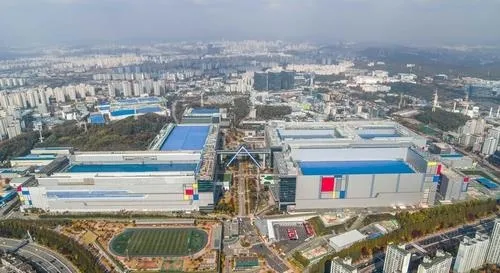Is Samsung Preparing for Market Challenges?

Synopsis
Key Takeaways
- Samsung Electronics is holding executive meetings to strategize for the second half of the year.
- Discussions will focus on global market uncertainties and supply chain vulnerabilities.
- The DX division will review upcoming product launches.
- Samsung's DRAM market share has declined amid stiff competition.
- Trade policies and geopolitical tensions are influencing business strategies.
Seoul, June 17 (NationPress) Samsung Electronics has initiated high-level meetings to strategize for the second half of the year amidst rising uncertainties in the global marketplace, as reported by industry insiders on Tuesday.
The biannual meetings in June and December are spearheaded by the leaders of each business division. During these sessions, executives examine regional and sector-specific challenges and outline sales tactics and objectives for the forthcoming months, as per Yonhap news agency.
This three-day conference, running through Thursday, is anticipated to concentrate on addressing escalating global uncertainties, including evolving trade regulations under U.S. President Donald Trump’s second term and intensifying geopolitical tensions in the Middle East.
Executives will also evaluate supply chain weaknesses and deliberate on tailored responses for different regions, according to sources.
As in prior years, Executive Chairman Lee Jae-yong is not expected to be present.
The DX division will be reviewing launch strategies for the upcoming versions of Samsung's foldable smartphones—the Galaxy Z Fold 7 and Galaxy Z Flip 7—along with regional marketing approaches.
This division is also likely to address the implications of including home appliances in the list of items subjected to a 50 percent U.S. tariff on steel imports.
The DS division, which oversees Samsung's semiconductor sector, is expected to engage in comprehensive discussions regarding sales strategies and ways to bolster long-term competitiveness.
Samsung lost its leading position in the global dynamic random access memory (DRAM) market to SK hynix Inc. in Q1 and continues to encounter hurdles in high-bandwidth memory (HBM) and foundry services.
Samsung’s global DRAM market share dropped to 34.4 percent in Q1 from 38.6 percent the previous quarter. Meanwhile, SK hynix’s share increased from 36 percent to 36.9 percent, marking the first time Samsung has been surpassed, according to market research firm Omdia.









